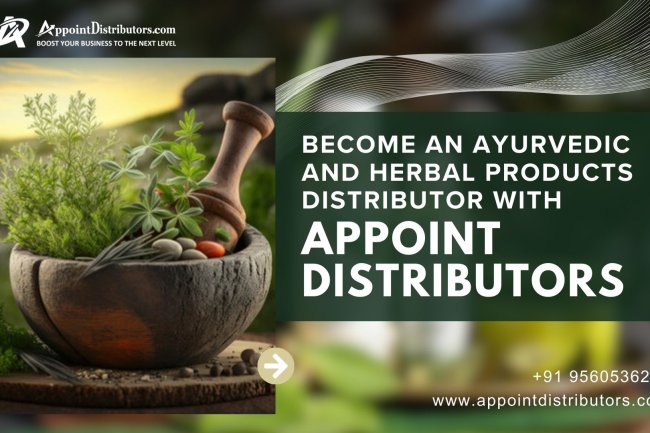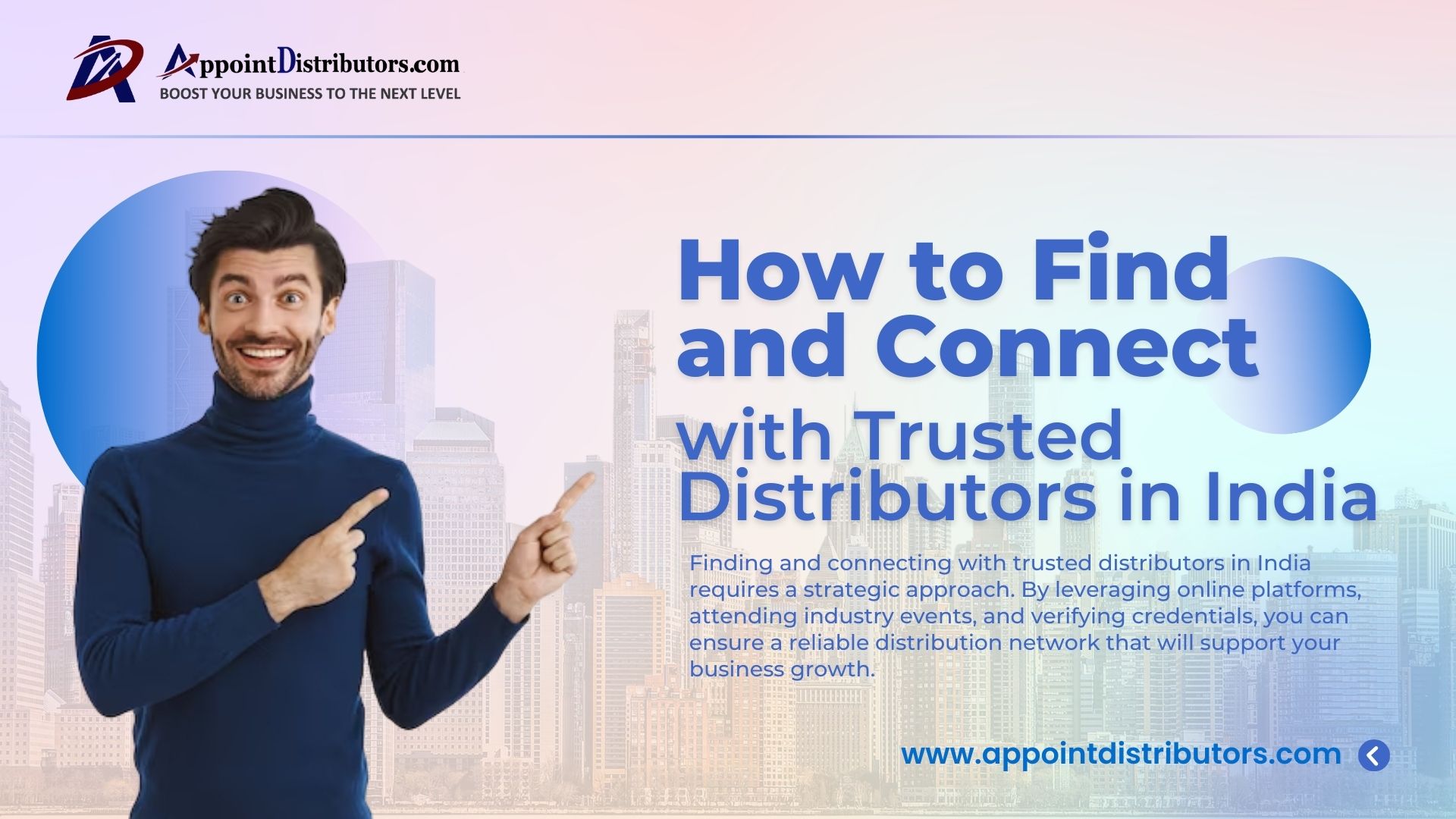Everything You Need to Know About Starting an FMCG Product Distributorship?
Appoint Distributors - Wanted Distributors, Distributorship Opportunities, Wholesale Dealership, Distribution Busines
FMCGs, or fast-moving consumer goods, are inexpensive goods with high consumption. The best examples are anything a customer purchases from a retail store, such as food, clothing, and household goods. Popular and prosperous supermarkets like Big Bazaar, D-mart, Reliance Fresh, neighborhood food stores, and Kirana stores are examples of FMCG brands. The Indian economy generates money through a variety of industries. A distributor of FMCG acts as a go-between for the retailer and the producer. Promoting the goods of a specific FMCG company that chooses to distribute its goods in a certain area is someone's job. Depending on the kind of shop picked, a distributor in FMCG has a different chance of success. Let's examine the concept of FMCG distributorship options in this sector.
According to Forrester Research, distributorship prospects for FMCG products will increase at a rate of 10-12% annually over the next ten years.
What is FMCG?
Simply said, a consumer good, often known as an FMCG, is a finished commodity that the client purchases. FMCGs, or fast-moving consumer goods, have a lengthy supply and demand chain. Marketable items are produced, distributed, and marketed by this industry.
India is first in the Asia-Pacific FMCG market average growth chart, followed by Vietnam, Malaysia, China, and several other nations. In 2018, India's FMCG market expanded the fastest in the region. India's FMCG income has surged by a startling 21.4% during the past ten years.
Best FMCG Businesses in India
The top 10 FMCG companies in India are listed below:
- Amul
- Dabur
- Godrej Consumer Products Ltd
- Emami
- Tata Consumer Products
- Hindustan Unilever
- Parle Agro
- ITC Limited
- Marico Limited
- Britannia Industries Limited
The Top 4 FMCG Products
Let's now discuss the several categories that FMCG products fall into as well as the category that all of the products that we use daily belong to. Knowing which FMCG product categories and subcategories it falls under and which brands already have it will help you create, package, and sell your FMCG products successfully whether you own a store or other type of business.
Personal Care Products Distributorship
Bath, hair, cosmetics, and dental care goods make up the personal care products market in our nation. This business, which makes up approximately 22% of the fast-moving consumer goods market, is propelled by celebrity endorsements, increased urbanization, and rising income levels. Skin moisturizers, makeup for the face, talcum powder, soap bars, hair masks, lipsticks, deodorants, eyeliner, etc. are some of the most popular personal care items that we use virtually every day. Want to Become a personal care products distributor like body moisturizers, body care items, men's grooming kits, sleep masks, manicure and pedicure sets, wet wipes, electric trimmers, facial tissues, wet tissues, trimmer and shaver sets, and more?
Food & Beverage Distributors
People love to eat and drink all over the world, which is why the food and beverage industry is expanding daily. This has greatly increased the prospects for food product distribution in India. Become an FMCG products distributor, ready-to-eat snacks, FMCG items, organic food, juices, soft drinks, and a variety of other things. Additionally, you can trade in natural foods, organic foods, breakfast foods, breakfast food items, food ingredients, chocolate, potato chips, sugar, tea, edible oil, candy, jams, turmeric powder, noodles, basmati rice, coriander powder, edible salt, soybean oil, red chili powder, mustard oil, toffee, junk food, and make good returns on your investments. By selecting a company from our extensive selection of market-serving businesses, you can expand your earning opportunities.
Cleaning Products Distributors
The Covid epidemic is driving a dramatic increase in the need for cleaning supplies, particularly sanitizers and disinfectants. India's market for cleaning supplies. The development of new healthcare facilities, an increase in disposable income, and the introduction of cutting-edge cleaning products are further boosting the market for cleaning chemicals in India. Become a home cleaning products distributor whether it is toilet cleansers, utensil cleaners, or surface cleaners, liquid home products are extremely prevalent in the domestic market. These cleaning products rule every cleaning category in our home, and in the past few years, the market has expanded at a strong CAGR of more than 26%. Popular brands from big companies like Hindustan Unilever Limited, Dabur India Limited, Johnson & Johnson, Jyothy Laboratories, etc. include Surf, Harpik, Dettol, and Lux.
Healthcare & Hygiene Products Distributors
It won't be overstating things to say that using healthcare items today is crucial. We use healthcare items to support our bodies, which also help us live healthier lifestyles and maintain our physical and emotional well-being. Products like an intimate wash, feminine hygiene products, prescription drugs, nutraceutical items & diagnostic products, daily use products like sunblock lotion, etc. are all included under the umbrella of healthcare & hygiene products. Today, the use of healthcare goods is more widespread than it was in the past when they were only considered required when a person was sick. This ensures that any illness can be cured in advance.
Who is FMCG Distributor?
The FMCG industry is built on the distributor. The majority of the time, distributors of FMCG products have the sole authority to distribute a particular group of goods in a particular region. He will be in charge of retail penetration, market penetration, and product distribution. A distributor is in charge of a certain clientele, such as hotels, restaurants, and canteens.
An FMCG distributor fills a variety of functions in the channel, including the following:
- distributes or sells products in small quantities to retailers after purchasing them in bulk from the producer.
- receives orders from businesses and organizations and ensures that the items are of a high standard and delivered on schedule.
- manages the needs of outlets and goods inventory through their inventory.
- provides the money required to permit credit to the retail sector.
- increases the retail market (by constructing more stores) as well as the retail penetration of a variety of products.
- among other things, works on in-store marketing and H2H (Human to Human) promotions.
- helps to lessen and address client concerns.
- The distributor thus held a diverse position within the FMCG sector.
How to become an FMCG distributor in the Indian FMCG Industry?
Typically, a firm will name just one distributor in a particular city. Anyone who wants to become a distributor should hunt for components from a closed business. So that the right individual can be contacted whenever an opportunity arises, and firm workers can see a person's profile.
The majority of the time, companies will search for a firm's or person's prior experience in FMCG distribution. Making a case will be simple if you have experience. If someone does not have prior experience in that industry, having a partner is advised because it will strengthen the case and bring value to the company. For someone launching their first FMCG distribution business, this is a great concept. It can be challenging to obtain a larger clientele or a distributorship with a reputable organization if you lack experience. Perhaps a distributorship with a smaller business or brand will do.
What does it take to become an FMCG Distributor?
Before choosing someone to be a distributor, a company holds several meetings.
- The ability to invest in the business is the most important requirement. Someone should be able to invest the same amount as the monthly turnover if they want to work as a distributor.
- FMCG experience is second in importance after financial stability. You can maintain the efficiency of your firm with the aid of prior experience. For a business to grow, relationships with market retailers are essential.
- All orders, whether or not they are delivered the next day, are collected as part of the service provided to shops. When a distributor doesn't fill orders, the business's reputation degrades, and retailers stock goods from rival companies, which reduces market share.
- A distributor should be willing to give credit in the marketplace; doing so will improve sales and benefit the distributor.
- A distributor needs to build up a warehouse, employ salesmen to receive orders from the market, rent a vehicle to transport goods there, and utilize a computer system to charge and bill merchants.
Conclusion
If you have a solid company plan, you can use any distribution technique. There are numerous lucrative FMCG distributorship opportunities available, with choices for companies of all sizes. However, it has emerged as one of India's most fiercely competitive sectors. You might benefit for the rest of your life if you make good plans and get started right away.
What's Your Reaction?




















